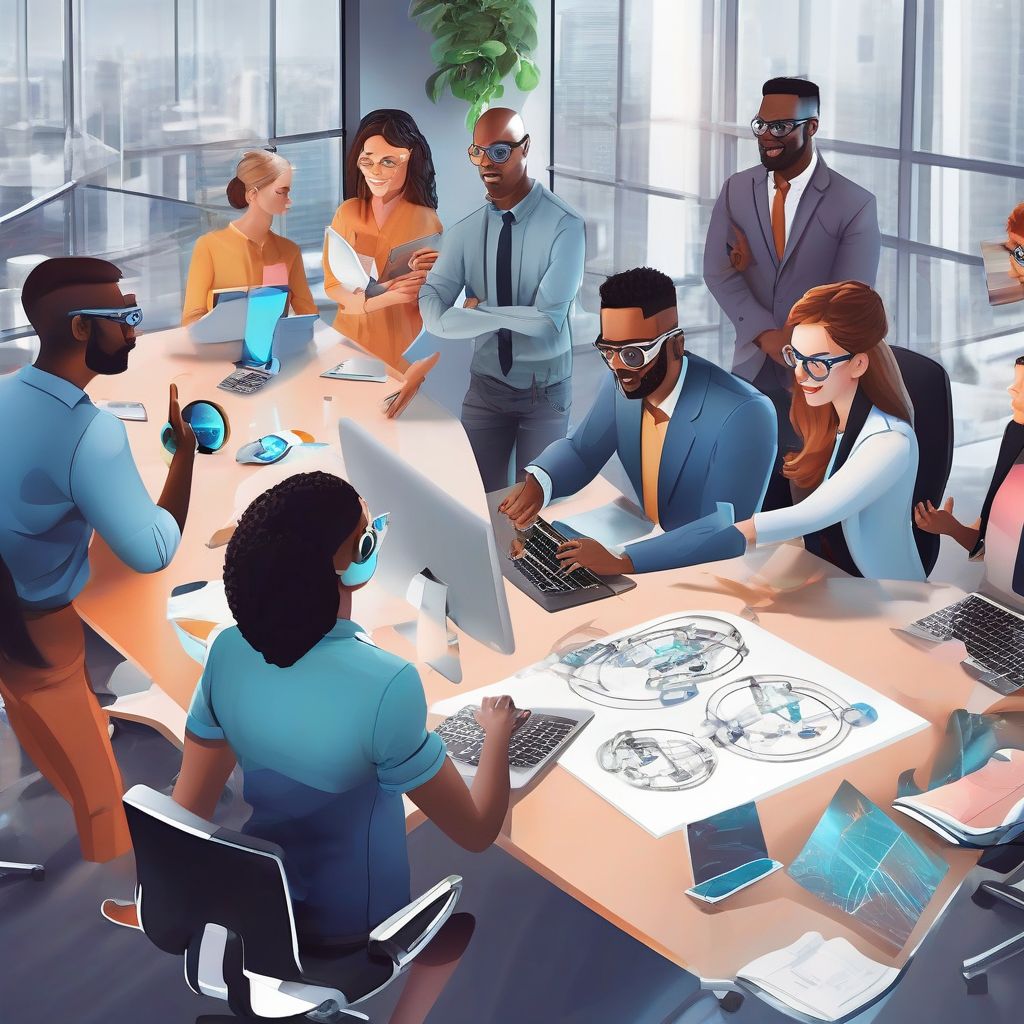Remember the Jetsons and their futuristic world? Flying cars aside, their automated lives always seemed so… efficient. While we might not have Rosie the Robot (yet!), the future of work is undeniably intertwined with technology and automation. This evolution is reshaping industries, redefining roles, and sparking curiosity (and maybe a little anxiety) about what it means for the workforce.
As a nutritionist and meal prepping coach, I’ve witnessed firsthand how technology has transformed my field, from online consultations to personalized diet plans. This digital shift got me thinking – how is technology impacting other industries? What skills will be in high demand? How can we adapt and thrive in this evolving landscape?
Embracing the Change: How Technology is Reshaping Industries
The integration of technology and automation isn’t about robots stealing jobs; it’s about creating new opportunities and enhancing existing roles. Imagine this:
- Healthcare: AI-powered diagnostic tools assisting doctors in making faster, more accurate diagnoses. This allows medical professionals to dedicate more time to patient care and developing innovative treatment strategies.
- Manufacturing: Collaborative robots, or “cobots,” working alongside human workers, improving efficiency and safety by handling repetitive or physically demanding tasks.
- Customer service: AI-powered chatbots providing instant support and resolving queries, freeing up human agents to focus on complex issues that require empathy and critical thinking.
These are just a few glimpses into the transformative power of technology across various sectors. As automation takes over routine tasks, it paves the way for humans to focus on creativity, problem-solving, and strategic thinking.
 The Future of Work with Technology
The Future of Work with Technology
[amazon bestseller=”future of work”]
The Skills of the Future: Adaptability is Key
The future belongs to those who embrace lifelong learning. As technology rapidly evolves, so too do the skills needed to thrive. Here’s what you need to focus on:
1. Digital Literacy: It’s not just about knowing how to use a computer; it’s about understanding and leveraging various digital tools and platforms. Think data analysis software, project management applications, and online collaboration tools.
2. Critical Thinking and Problem-Solving: Automation might handle routine tasks, but complex problems require human ingenuity. Honing your analytical and critical thinking skills will be paramount.
3. Creativity and Innovation: In a world increasingly driven by data and algorithms, those who can think outside the box, generate novel ideas, and adapt to change will be highly sought after.
4. Emotional Intelligence and Communication: As we navigate a more tech-driven world, strong interpersonal skills, empathy, and the ability to communicate effectively (both verbally and in writing) will be crucial.
5. Lifelong Learning: The future workforce needs to be agile and adaptable. Embrace a growth mindset, be curious, and continuously seek opportunities to expand your knowledge and skillset.
Navigating the Future with Confidence
Change can feel daunting, but it’s also an opportunity for growth and reinvention. Here are a few tips to help you navigate the future of work with confidence:
- Embrace Upskilling and Reskilling: Take advantage of online courses, workshops, and certifications to acquire in-demand skills.
- Network and Collaborate: Connect with professionals in your field, attend industry events, and engage in online communities to stay ahead of the curve.
- Develop a Growth Mindset: Embrace challenges as opportunities for learning and view setbacks as stepping stones to success.
- Stay Informed about Industry Trends: Subscribe to relevant publications, follow thought leaders on social media, and attend webinars to stay abreast of technological advancements and their impact on your field.
The future of work is about collaboration between humans and technology. It’s about working smarter, not harder. It’s about leveraging our uniquely human skills to create, innovate, and solve problems in ways that machines simply can’t replicate. By embracing change, developing in-demand skills, and adopting a growth mindset, we can all thrive in the exciting and ever-evolving future of work.
